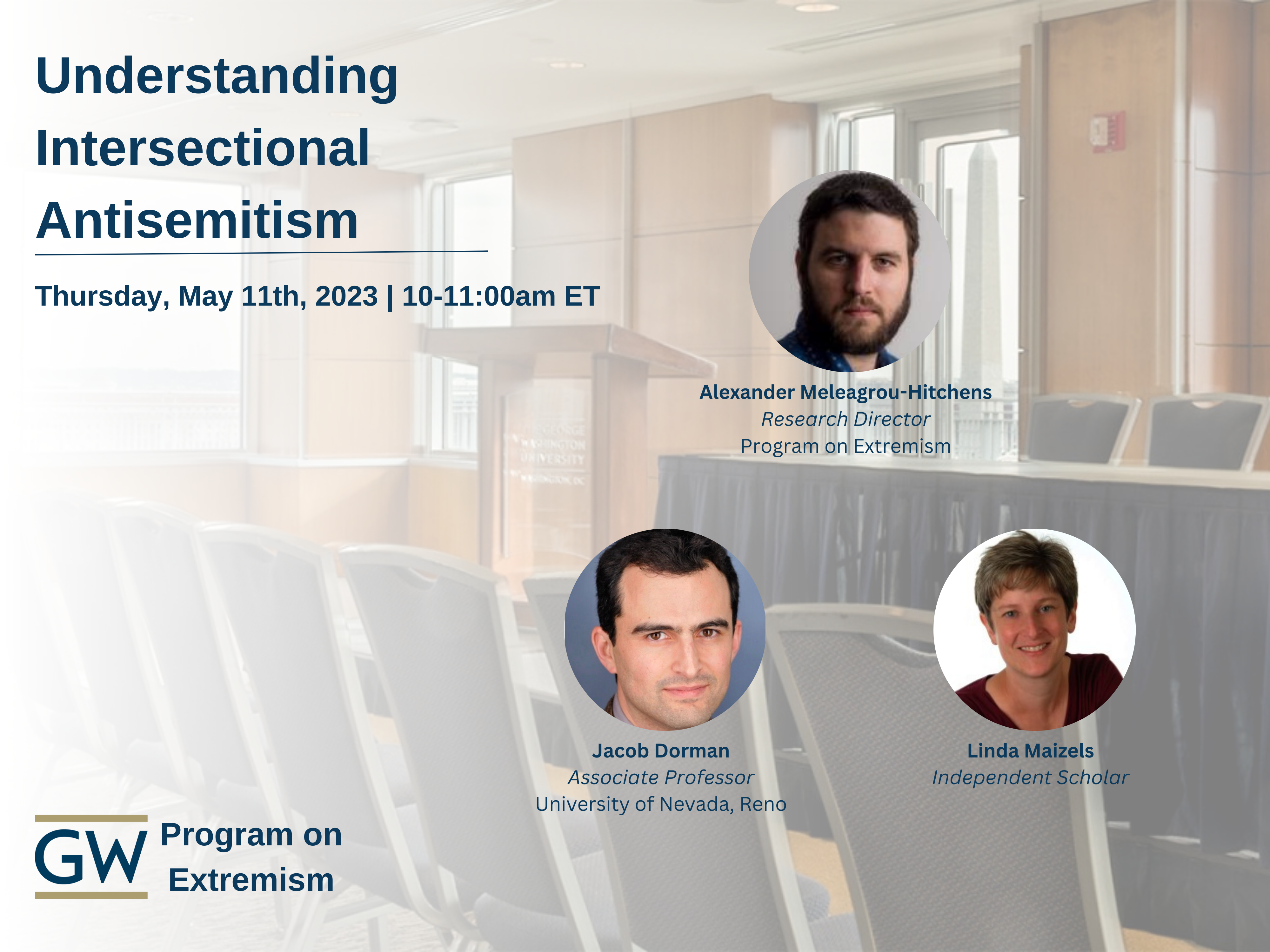Understanding "Intersectional Antisemitism"

Summary
Suspicion, hatred, and persecution of the Jewish people constitute core ideological components for a range of extremist groups and movements operating in the U.S. today. In this sense, antisemitism among American extremists is intersectional, cutting across a wide spectrum of extremist activism. On May 11th, 2023, the Program on Extremism hosted a discussion that sought to unpack some of these overarching themes. This discussion was moderated by Program Research Director, Dr. Alexander Meleagrou-Hitchens, and featured insights from Dr. Linda Maizels who dissected the intersectional nature of antisemitism from antiquity to the present day.
Dr. Maizels summarized key findings from her book, What is Antisemitism? A Contemporary Introduction. In the book, she identified three broad generalizations of contemporary antisemitism among extremist cross-sections of the Western political left, the Western political right, and within the Middle East and North African (MENA) region. For Maizels, it was easier to trace the historical roots of antisemitism within fringes of the political right where antisemitic words and symbols were more obvious and direct, but more difficult to trace among similar milieus of the political left and the MENA region because of the complexity of distinguishing antisemitic rhetoric from legitimate criticisms of the state of Israel. Despite these difficulties, all three expressed antisemitism using Nazi symbols and referencing shadowy Jewish conspiracies - albeit for different ends. For example, Nazi symbols used by the extreme right are often displayed proudly and to exclude Jewish persons, while Nazi symbolism used by the extreme left is often used to shame Israel’s alleged violence against Palestinians by comparing Israel’s actions to the Holocaust.
When asked about the evolution of antisemitism from antiquity to the present day, she outlined an “onion” model with layers of prejudice toward the Jewish community building upon each other over time. The echoes of animosity toward the Jewish community in antiquity can still be seen today in contemporary conspiracy theories that facilitate antisemitic sentiment by portraying the Jewish community as racially or religiously different and inferior to other groups. Dr. Maizels cited examples such as a political cartoon of Israeli Prime Minister Benjamin Netanyahu eating a baby, signifying modern-day examples of antisemitic blood libel and child sacrifice conspiracy theories that are integral to the Western extreme right and MENA region streams of antisemitism.
In discussing the complex issue of antisemitism in the U.S., Dr. Maizels stated the importance of understanding that the historical oppression the Jewish community has faced goes beyond the Holocaust. Only this historical understanding will help to address the deeply rooted conspiracy theories that portray the Jewish community as symbols of evil and otherness. Conspiracy theories are effective drivers for antisemitism because they offer easy answers to complex questions. To combat the pervasiveness of these conspiracies, Dr. Maizels concluded by calling for an increased willingness to engage with people whose opinions differ from our own. She sees engaging in meaningful and substantive debate with those of differing opinions as a foundation of our liberal democracy and the most effective tool to combat the antisemitism inherent across extremist ideologies in the U.S.

